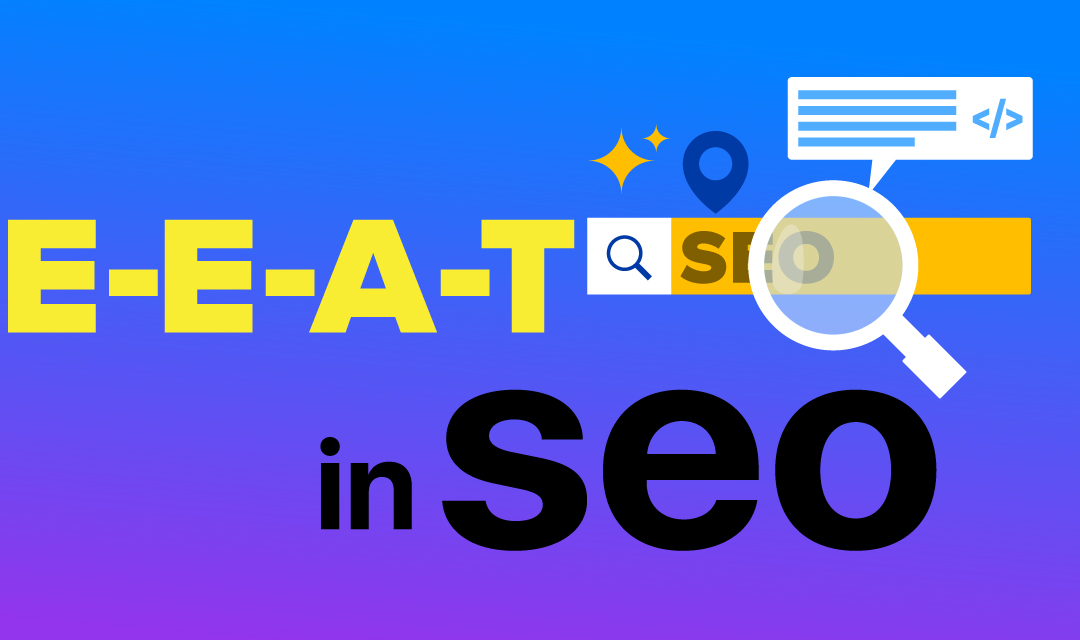
Google introduced E-A-T (Expertise, Authoritativeness, and Trustworthiness) in March 2014 to evaluate the quality of content to rank search results. E-A-T is a set of criteria that Google uses to assess the quality and credibility of web content, especially for content that deals with topics that could impact a person's health, finances, safety, or general well-being.
In December 2022, Google added an additional attribute, E (Experience) to further improve its algorithm. E-E-A-T is now a new concept that is important in the field of SEO.
What is E-E-A-T?
E-E-A-T stands for Experience, Expertise, Authoritativeness, and Trustworthiness. It is a concept that Google uses to evaluate the quality of websites and their content. E-E-A-T is used as an important consideration for Google to rank web pages in its SERP (Search Engine Result Pages).
Google wants to provide search results in the order that meets user's search intent, and E-E-A-T is one of the criteria Google introduced to rate the quality of content. The higher the E-E-A-T earned by the web page will result in a higher rank in its search results. Google believes that websites with higher E-E-A-T are more likely to provide users with high-quality information.
Google has a Search Quality Rater Guidelines, the handbook that real people use to evaluate the quality of SERP. The real people who evaluate the content are known as Quality Raters, and their feedback helps Google measure the accuracy of its search rankings. E-E-A-T is one of the criteria used alongside Page Quality (PQ) and Needs Met (NM) ratings.
What is YMYL?
YMYL stands for "Your Money or Your Life" and refers to topics and pages presented in a world-wide-web that could have real-world impact on readers. YMYL topics can significantly impact viewers' health, financial stability, safety, welfare, and well-being of society.
E-E-A-T is especially important for websites that publish content about Your Money or Your Life (YMYL) topics. YMYL topics have a high risk of harm that can have a significant impact on a person's health, safety, financial well-being, or other important aspects of their life. Examples of YMYL topics include:
- Health and safety
- Finance
- Shopping
- News and current affairs
- Civic, government and legal
If you publish content about YMYL topics, it is important to make sure that your website has high E-E-A-T. This will help to ensure that your content is ranked higher in search results and that users can trust the information that you are providing.
Here's a breakdown of what each attribute of E-E-A-T represents:
- Experience: Experience demonstrates the author's first-hand experience with the subject matter discussed in the content. Having a real-life experience proves that the content has an authentic value that is based on true experience and not something that was made up.
- Expertise: This refers to the expertise or knowledge of the author. Google wants to ensure that the content is created by individuals with the necessary expertise in the subject matter. For example, medical advice should come from qualified medical professionals.
- Authoritativeness: Authoritativeness is related to the reputation and authority of the author or website. It considers factors like the author's credentials, the website's domain authority, and its reputation within the industry. High-quality backlinks and mentions from reputable sources can also contribute to authoritativeness.
- Trustworthiness: Trustworthiness deals with the reliability and trustworthiness of the content provided. Factors such as transparency, accuracy, and the overall trustworthiness of the website and its content are evaluated. Sites that promote misinformation or engage in deceptive practices may be seen as untrustworthy.
E-E-A-T is particularly crucial for websites that provide content related to medical, financial, legal, or other civic topics. Google's algorithms aim to prioritize content that demonstrates high levels of E-E-A-T because it helps ensure that users receive reliable and trustworthy information.
To improve E-E-A-T for your web pages, consider the following:
- Discuss real-life experiences in your content.
- Clearly display author credentials and expertise.
- Maintain a professional and authoritative tone in your content.
- Cite credible sources and back up claims with evidence.
- Build a strong online reputation through high-quality content and ethical SEO practices.
- Regularly update and review content to ensure accuracy and relevance.
Conclusion
The evolution of Google's content rating criteria from E-A-T to E-E-A-T marks a significant milestone in the world of SEO. Google's commitment to providing users with high-quality, trustworthy information has led to the introduction of Experience as a vital attribute alongside Expertise, Authoritativeness, and Trustworthiness. This concept has become indispensable for websites, especially those dealing with Your Money or Your Life (YMYL) topics, where real-world consequences are at stake.
E-E-A-T, with its four crucial components, emphasizes the importance of offering content that reflects real-life experiences, authoritative knowledge, and trustworthiness. Google's reliance on Quality Raters to evaluate these attributes highlights the significance of E-E-A-T in determining search rankings.
Incorporating these principles into your content strategy, along with ethical SEO practices, can boost your website's chances of ranking high in search engine results. Ultimately, E-E-A-T reinforces Google's commitment to delivering valuable and dependable content to its users, emphasizing the importance of accuracy, expertise, and trustworthiness in the digital landscape.
Share this post
Leave a comment
All comments are moderated. Spammy and bot submitted comments are deleted. Please submit the comments that are helpful to others, and we'll approve your comments. A comment that includes outbound link will only be approved if the content is relevant to the topic, and has some value to our readers.




Comments (0)
No comment